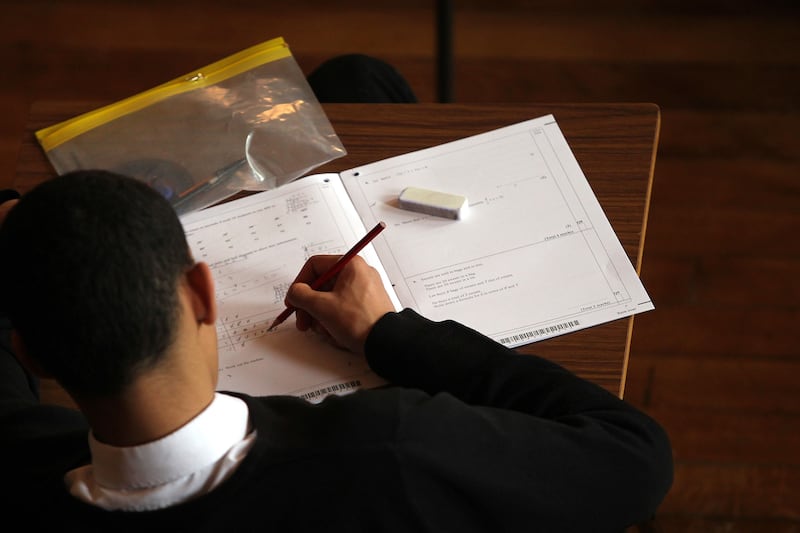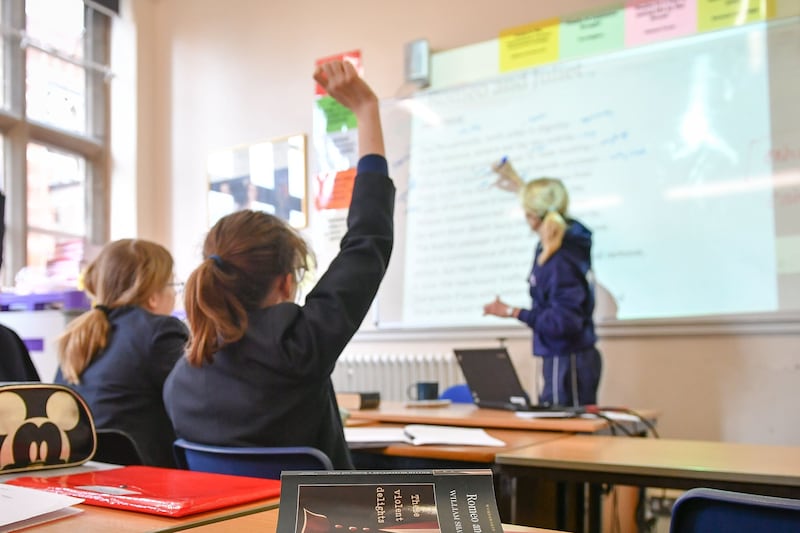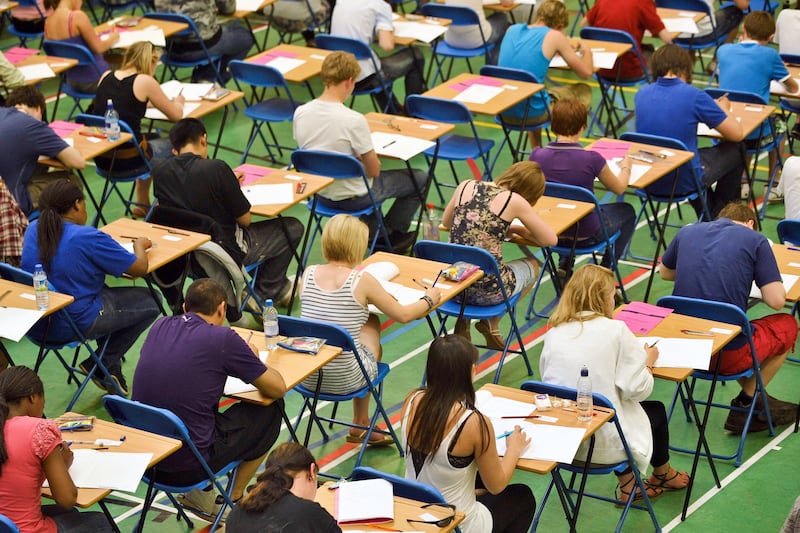THE number of A* grades awarded to pupils is expected to fall significantly when GCSE results are published today.
A change to the grading scale in the north means only "exceptional" children will score the highest grade.
There is expected to be little change, however, in the proportion scoring a `good' C or above.
Pupils across Northern Ireland, Wales and England will receive this year's GCSE results today.
For the first time, young people in the north will receive a new C* grade.
Its creation was necessary following the move in England to scrap traditional letters in favour of a numerical system.
Exams bodies in England replaced A*-G with 9-1 - with 9 being the highest.
The north's Council for the Curriculum, Examinations and Assessment (CCEA) was, therefore, asked to create a new grade to "align with the level of achievement consistent with grade 5 on the English 9-1 scale".
Read More: Exam chiefs working to help employers 'fully understand' new GCSE grades
This led to the C*, which will sit between the B and C.
Now, the A* grade will be coupled with the 9 in England and will "reflect exceptional performance". The proportion achieving this standard is expected to fall.
The grade A will cover 8 and 7 while the B will align with the 6. In addition, C* will align with the 5.
Wales chose to retain an eight-grade A*-C scale meaning the bar to achieving a B or A* in Wales will be lower than in Northern Ireland.
While the A* in CCEA's scale is aligned to the 9 in England, Qualifications Wales says its A* is equivalent to an 8 or above.
An analysis of figures by the Press Association, meanwhile, reveals how the most popular GCSE subjects have changed between 2008 and 2018.
It excludes maths, English and science, which are taken in some form by all pupils.
History and geography have both grown in popularity while there has been a decline in French and design and technology.
Spanish and art and design subjects have entered the top 10 at the expense of drama.
Geoff Barton, general secretary of the Association of School and College Leaders, said the decline in drama and design and technology, as well as smaller-entry creative arts subjects, reflected the fact that these subjects were under huge pressure.
"This is because they have been marginalised by a double whammy in which the government has put a greater emphasis on the traditional set of academic subjects while it has also cut school funding in real terms making it difficult to sustain a full range of courses," he said.
Figures published by exams regulator Ofqual in May suggested an increase in entries for arts and design subjects this summer compared with last year.
History and geography have risen from second and third most popular in 2008 to first and second last year.
While French was the fourth most popular option in 2008, it has fallen to sixth, with entries down 37 per cent.
But Spanish is rising in popularity, and was the eighth most popular subject last year.
Ofqual's figures indicate there has been a 4 per cent increase in modern foreign language entries this summer.
"It is good to see that Spanish is now in the top 10 but the increased number of entries in this subject does not make up for the decline in French and in the smaller-entry subject of German," Mr Barton added.
"Our concern is that the perceived difficulty of modern foreign languages is deterring students from taking them up and that this has implications for international relations and the future supply of language teachers."








